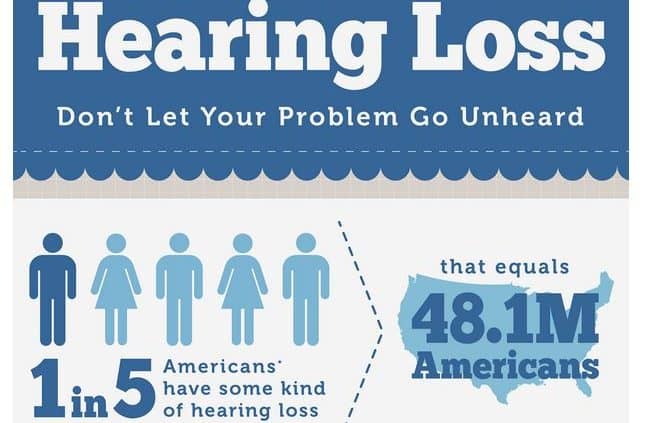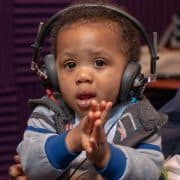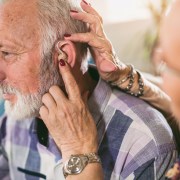Age Related Hearing Loss
Age-related hearing loss is the number one communication disorder, with 1 in 5 Americans having hearing loss of some kind–that’s 48.1 million people. Around 4.5 million of those with hearing problems (11%) are between the ages of 50-59. The National Institute on Deafness and Other Communication Disorders (NIDCD) also estimates that as much as 35% of those between 65 and 75 have hearing loss. The name for age-related hearing loss is presbycusis.

There is not one single cause of age-related hearing loss, which occurs gradually as tiny hair cells inside the inner ear get damaged or die. These hair cells turn sound waves into nerve signals that are interpreted as sound by the brain. They do not regrow. It’s believed that the largest factors of age-related hearing loss are genes and loud noises. Family history, exposure to loud music or other loud sounds, smoking, and some conditions such as diabetes also contribute.
It may be difficult to identify age-related hearing loss, because it occurs slowly but gradually over time. However, certain symptoms will be continuously present:
- Often needing people to repeat themselves because their speech sounds mumbled
- Difficulty hearing conversations in crowded, noisy areas
- Difficulty distinguishing sounds such as “s” and “th”
- Problems hearing higher-pitched voices, such as women’s voices
- General frustration with being unable to hear
- Experiencing ringing or roaring (tinnitus) in one or both ears
Hearing loss can cause people to become isolated, often not leaving home or seeking family or friends. Of the 4.5 million people age 50-59 with age-related hearing loss, only 4.3% of them using hearing aids. Even though this hearing loss is not reversible, it can be managed with hearing aids and other assistive devices that will improve day-to-day functions, letting you continue to lead a full, active life.
If you are experiencing any of the above symptoms or others that may indicate age-related hearing loss, have a hearing test. Please do not hesitate to contact us with any questions or to set up a screening.





